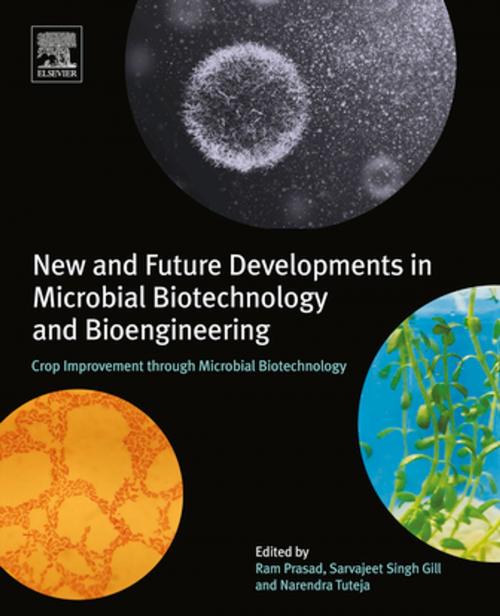New and Future Developments in Microbial Biotechnology and Bioengineering
Crop Improvement through Microbial Biotechnology
Nonfiction, Science & Nature, Technology, Engineering, Chemical & Biochemical, Science, Biological Sciences, Biotechnology| Author: | ISBN: | 9780444639882 | |
| Publisher: | Elsevier Science | Publication: | February 20, 2018 |
| Imprint: | Elsevier | Language: | English |
| Author: | |
| ISBN: | 9780444639882 |
| Publisher: | Elsevier Science |
| Publication: | February 20, 2018 |
| Imprint: | Elsevier |
| Language: | English |
Crop Improvement through Microbial Biotechnology explains how certain techniques can be used to manipulate plant growth and development, focusing on the cross-kingdom transfer of genes to incorporate novel phenotypes in plants, including the utilization of microbes at every step, from cloning and characterization, to the production of a genetically engineered plant. This book covers microbial biotechnology in sustainable agriculture, aiming to improve crop productivity under stress conditions. It includes sections on genes encoding avirulence factors of bacteria and fungi, viral coat proteins of plant viruses, chitinase from fungi, virulence factors from nematodes and mycoplasma, insecticidal toxins from Bacillus thuringiensis, and herbicide tolerance enzymes from bacteria.
- Introduces the principles of microbial biotechnology and its application in crop improvement
- Lists various new developments in enhancing plant productivity and efficiency
- Explains the mechanisms of plant/microbial interactions and the beneficial use of these interactions in crop improvement
- Explores various bacteria classes and their beneficial effects in plant growth and efficiency
Crop Improvement through Microbial Biotechnology explains how certain techniques can be used to manipulate plant growth and development, focusing on the cross-kingdom transfer of genes to incorporate novel phenotypes in plants, including the utilization of microbes at every step, from cloning and characterization, to the production of a genetically engineered plant. This book covers microbial biotechnology in sustainable agriculture, aiming to improve crop productivity under stress conditions. It includes sections on genes encoding avirulence factors of bacteria and fungi, viral coat proteins of plant viruses, chitinase from fungi, virulence factors from nematodes and mycoplasma, insecticidal toxins from Bacillus thuringiensis, and herbicide tolerance enzymes from bacteria.
- Introduces the principles of microbial biotechnology and its application in crop improvement
- Lists various new developments in enhancing plant productivity and efficiency
- Explains the mechanisms of plant/microbial interactions and the beneficial use of these interactions in crop improvement
- Explores various bacteria classes and their beneficial effects in plant growth and efficiency















